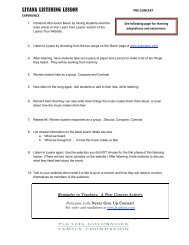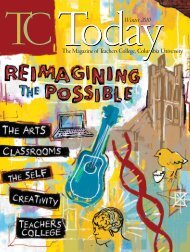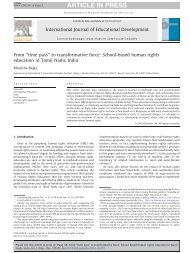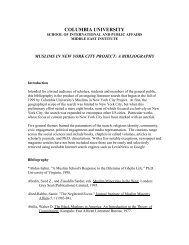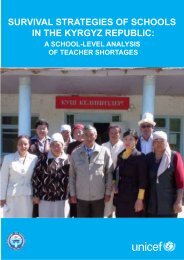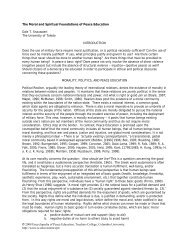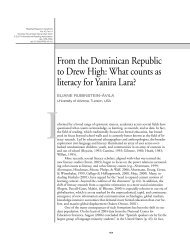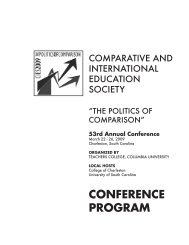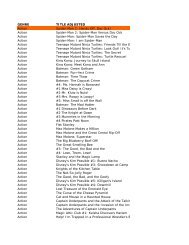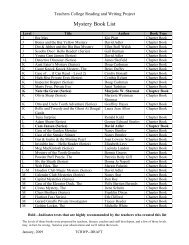TC Today - Teachers College Columbia University
TC Today - Teachers College Columbia University
TC Today - Teachers College Columbia University
Create successful ePaper yourself
Turn your PDF publications into a flip-book with our unique Google optimized e-Paper software.
The Protector<br />
When Names Can Hurt You<br />
Adam Kelley understands how dangerous slurs can be—<br />
and he’s shared that lesson with his students<br />
Adam Kelley’s classroom at the Brooklyn High School<br />
for Leadership and Community Service is a Safe<br />
Zone, where name-calling is never allowed. “New<br />
students push to understand the boundaries, so most of the<br />
time we need to have that conversation again about community<br />
and about respect,” says Kelley.<br />
Kelley knows just how damaging slurs can be. As a Peace<br />
Corps volunteer teaching kindergartners in a village in<br />
Uganda, he was outed by a woman who was attempting to<br />
blackmail him. The punishment for male homosexuality<br />
under Ugandan tribal law is severe, and Kelley had to flee,<br />
returning to the States.<br />
Someone differently constituted might have rethought his<br />
career path at that point, but Kelley, though shaken,<br />
became even more committed to multiculturalism and community<br />
building.<br />
He threw himself into summer intensive training with the<br />
<strong>Teachers</strong> <strong>College</strong> Peace Corps Fellows, a program that<br />
recruits returning Peace Corps volunteers to teach in highneed<br />
New York Public Schools. The Peace Corps Fellows has<br />
trained more than 700 returning Peace Corps volunteers<br />
since its inception in 1985, teachers who are consistently<br />
rated better than other first-year teachers.<br />
New students push to<br />
understand the boundaries,<br />
so most of the time we need<br />
to have that conversation<br />
again about community and<br />
about respect.<br />
In what turned out to be a pivotal teaching moment, Kelley<br />
eventually told his Brooklyn students the circumstances of<br />
his departure from Uganda. “Sometimes the students who’ve<br />
been in my class before educate the new students, and they<br />
will stick up for me. They have the conversation about what<br />
the slur means, and they educate the new students.”<br />
His students also identify with his experience because “they<br />
don’t want to be saved. They want a second chance, and<br />
they see that me teaching at the school and interacting<br />
with them was my second chance. Sharing vulnerability with<br />
students who feel guarded in the school atmosphere allows<br />
them to focus on their learning because they’re not questioning<br />
the personal relationships they have with each other<br />
and with the teacher.”<br />
As far as Kelley is concerned, teaching is all about forming<br />
bonds, and even looking back on his final moments in his<br />
Ugandan village, he stresses that two of his friends brought<br />
their families to see him off. “They defied their culture to<br />
come and say goodbye. That took courage.”<br />
As he should know.<br />
— Emily Rosenbaum<br />
18 T C T O D A Y l s p r i n g 2 0 1 1<br />
photograph by Heather van uxem



